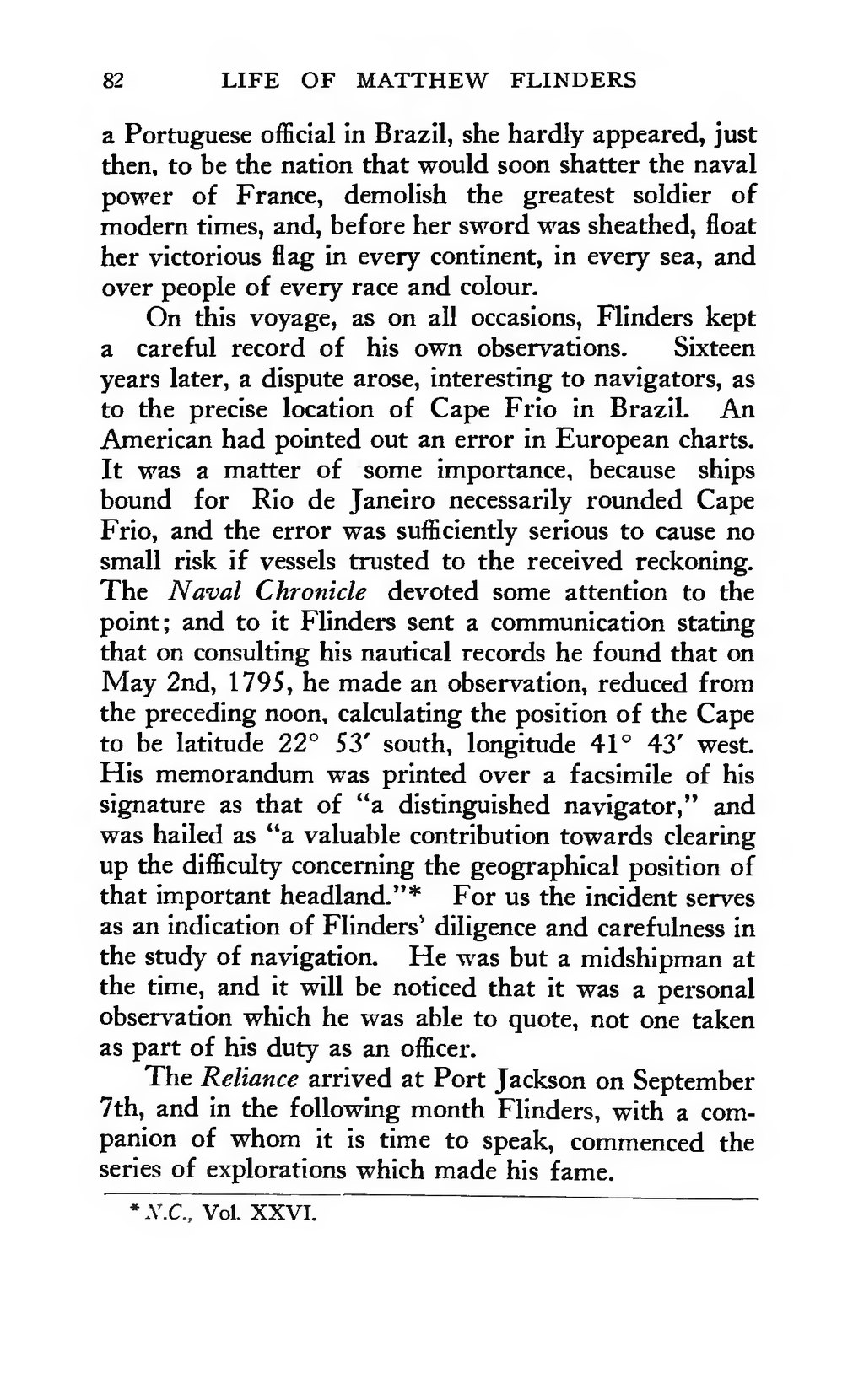a Portuguese official in Brazil, she hardly appeared, just then, to be the nation that would soon shatter the naval power of France, demolish the greatest soldier of modern times, and, before her sword was sheathed, float her victorious flag in every continent, in every sea, and over people of every race and colour.
On this voyage, as on all occasions, Flinders kept a careful record of his own observations. Sixteen years later, a dispute arose, interesting to navigators, as to the precise location of Cape Frio in Brazil. An American had pointed out an error in European charts. It was a matter of some importance, because ships bound for Rio de Janeiro necessarily rounded Cape Frio, and the error was sufficiently serious to cause no small risk if vessels trusted to the received reckoning. The Naval Chronicle devoted some attention to the point; and to it Flinders sent a communication stating that on consulting his nautical records he found that on May 2nd, 1795, he made an observation, reduced from the preceding noon, calculating the position of the Cape to be latitude 22° 53' south, longitude 41° 43' west. His memorandum was printed over a facsimile of his signature as that of "a distinguished navigator," and was hailed as "a valuable contribution towards clearing up the difficulty concerning the geographical position of that important headland."[1] For us the incident serves as an indication of Flinders' diligence and carefulness in the study of navigation. He was but a midshipman at the time, and it will be noticed that it was a personal observation which he was able to quote, not one taken as part of his duty as an officer.
The Reliance arrived at Port Jackson on September 7th, and in the following month Flinders, with a companion of whom it is time to speak, commenced the series of explorations which made his fame.
- ↑ N.C., Vol. XXVI.
